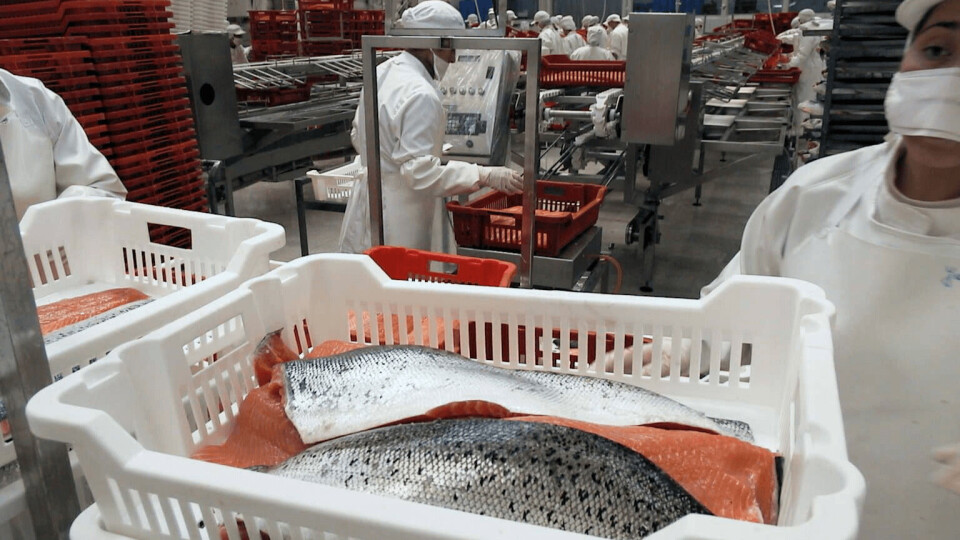
Curfews and road delays hit troubled Chile’s exports
Chilean salmon farmers have detailed the difficulties that have caused exports to plunge in the face of massive social unrest over inequality in the country.
At least 18 people have been killed in the unrest, including a four-year-old child and a man who died when a drunk driver rammed into a crowd of protesters on Tuesday.
The army has been used to control public order for the first time since the era of Chilean dictator Augusto Pinochet, and curfews have been imposed in several areas.

Production halved
Ventisqueros commercial manager, Fernando Pérez, told Fish Farming Expert’s Chilean sister site, Salmonexpert, that a curfew meant its salmon processing plant was operating only one shift, “therefore production is reduced by half”.
He said that although safe conducts could be requested to allow operation of a second shift, “we opted for the safety of our workers”.
Ventisqueros does at least have the advantage that its fish are taken directly to its processing facility after being harvested off the island of Chiloé. The unrest in Chile means trucks that transport for other farmers are not running regularly.
Flights delayed
“The vast majority of the plants in Puerto Montt are supplied with the fish that are grown in Calbuco and Quellón, mainly,” explained Pérez. “In our case it is different, because we have the collection right here, so we do not need the truck service for transport, and we process more continuously.”
Customs, ports and Chambers of Commerce are not functioning properly, so that shipping containers cannot be operated, and therefore the cargo is stored in freezers.
Some trucks used to transport fresh salmon enter the area, but in a very irregular way, said Pérez. In addition, the unrest means transfer of cargo at Santiago Airport is slow, and some flights are delayed or even cancelled.
One shift
Daniel Montoya, commercial and value-added products manager of Blumar, said the company had also reduced production to one shift at its Talcahuano plant.
“Our main concern is the safety and ease of our workers, so during all these days we have finished the working day earlier,” said Montoya.
It’s the same situation for Multiexport Foods, its sustainability and corporate affairs manager, Francisco Lobos, confirmed.
‘A lot of damage’
Eduardo Goycoolea, the executive director of New World Currents – a joint venture to sell Chilean salmon in China - said the company had been greatly affected, “suspending shipments of fresh produce due to road blocks and airline problems”.
“We hope to resume normal activity next week,” he added. “All this causes a lot of damage. We have been convincing clients for so long that we are reliable, and this happens; it is unfortunate.”
Sebastián Goycoolea, the chief executive of US marketing company BluGlacier, a joint venture of Salmon Blumar and Ventisqueros, said that “we have lowered our sales volume between 40% and 50% in the last week due to the situation in Chile”.
But not everything is bad news. The limitations on exports means Chilean salmon prices have risen from 7% to 10% in the spot market, reaching around US $4.5 per lb (fillet) in the US, Chile’s biggest export market, said Goycoolea.






















































